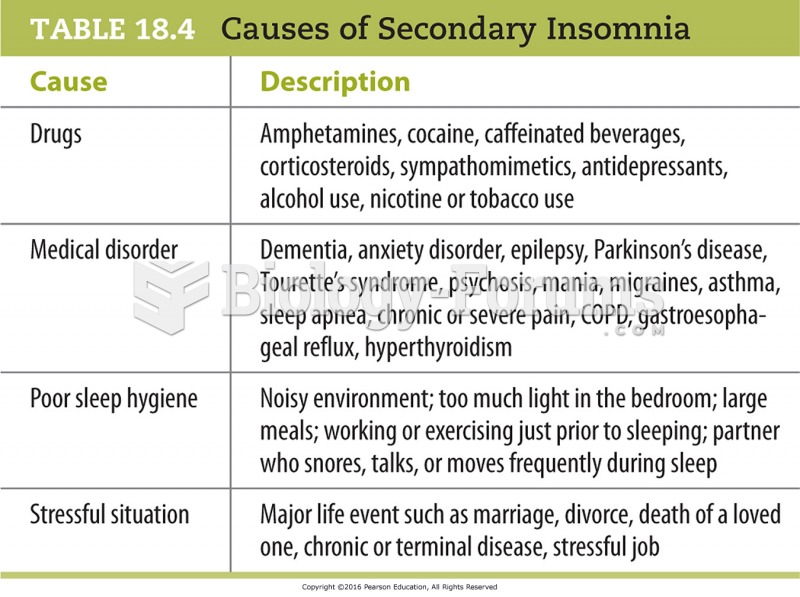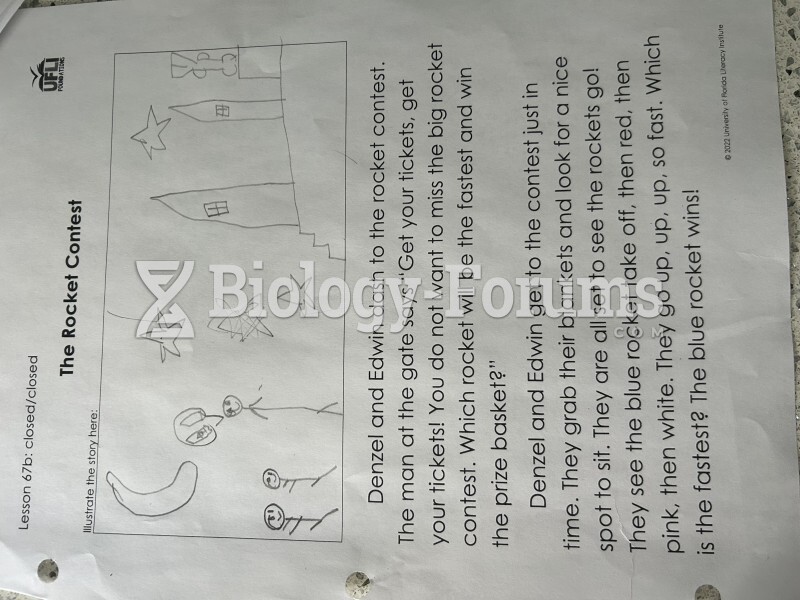|
|
|
Drying your hands with a paper towel will reduce the bacterial count on your hands by 45–60%.
The first monoclonal antibodies were made exclusively from mouse cells. Some are now fully human, which means they are likely to be safer and may be more effective than older monoclonal antibodies.
More than 34,000 trademarked medication names and more than 10,000 generic medication names are in use in the United States.
The familiar sounds of your heart are made by the heart's valves as they open and close.
The average person is easily confused by the terms pharmaceutics and pharmacology, thinking they are one and the same. Whereas pharmaceutics is the science of preparing and dispensing drugs (otherwise known as the science of pharmacy), pharmacology is the study of medications.






